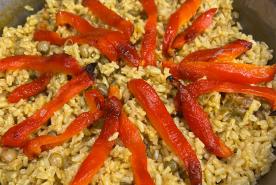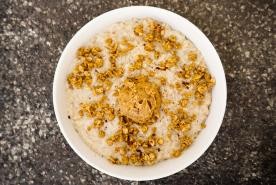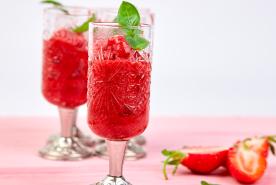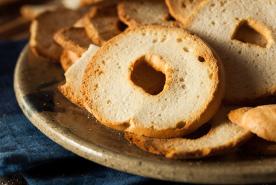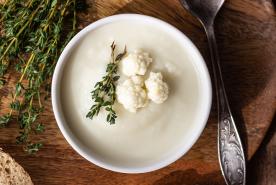Learn about managing kidney stones with a specialized diet. Discover the role of hydration, types of kidney stones, and dietary tips for prevention.
If you have kidney stones, you may need to follow a special diet plan. First, your healthcare professional will run blood and urine tests to find out what kind of risk factors you may have. Then your healthcare professional will tell you the diet changes and medical treatment you need to prevent having kidney stones come back.
A registered kidney dietitian can help you make the necessary changes in your diet plan and lifestyle.
Kidney Stones
Looking for more info about kidney stones?
Join our kidney stones community for patient stories, myths debunked, and stone-sized video content.
What is the most important factor to prevent kidney stone formation?
One of the best things you can do to avoid kidney stones is to drink plenty of water every day. This will help make sure that you urinate frequently to avoid any build up of calcium or uric acid.
Don't underestimate your sweat! Saunas, hot yoga and heavy exercise may sound good for your health, but they also may lead to kidney stones. Why? Loss of water through sweating whether due to these activities or just the heat of summer may lead to less urine production. The more you sweat, the less you will urinate, which allows stone-causing minerals to settle and deposit in the kidneys and urinary tract.
Hydrate with water. Be sure to keep well hydrated, especially when doing exercise or activities that cause a lot of sweating. You should drink 2-3 quarts of liquid or 8-12 cups per day to produce a good amount of urine. Speak with a healthcare professional about the right amount of water that's best for you. Try to avoid sodas (especially those with high amounts of fructose), sweetened iced tea and grapefruit juice.
What kind of diet plan is recommended to prevent stones?
There is no single diet plan for stone prevention. Most diet recommendations are based on stone types and individualized for each person.
1. Calcium Oxalate Stones: most common stones
Oxalate is naturally found in many foods, including fruits and vegetables, nuts and seeds, grains, legumes, and even chocolate and tea. Some examples of foods that have high levels of oxalate include peanuts, rhubarb, spinach, beets, Swiss chard, chocolate and sweet potatoes. Limiting intake of these foods may be beneficial for people who form calcium oxalate stones which is the leading type of kidney stone.
Eat and drink calcium foods such as milk, yogurt, and some cheese and oxalate-rich foods together during a meal. The oxalate and calcium from the foods are more likely to bind to one another in the stomach and intestines before entering the kidneys. This will make it less likely that kidney stones will form.
Calcium is not the enemy but it tends to get a bad rap! This is most likely due to its name and misunderstanding that calcium is the main cause in calcium-oxalate stones. A diet low in calcium actually increases your chances of developing kidney stones.
Don't reduce the calcium in your diet. Work to cut back on the sodium in your diet and to pair calcium-rich foods with oxalate-rich foods. The recommended calcium intake to prevent calcium stones is 1000-1200 mg per day (you can eat 3 servings of dairy products with meals to meet the recommendation).
Extra sodium causes you to lose more calcium in your urine. Sodium and calcium share the same transport in the kidney so if you eat high sodium foods it will increase calcium leakage in the urine. Therefore, a high sodium diet can increase your chances for developing another stone. There are many sources of "hidden" sodium such as canned or commercially processed foods as well as restaurant-prepared and fast foods.
You can lower your sodium intake by choosing fresh low sodium foods which can help to lower calcium leakage in the urine and will also help with blood pressure control if you have high blood pressure.
2. Uric acid stones: another common stone
Red meat, organ meats, and shellfish have high amounts of a natural chemical compound known as purines. High purine intake leads to a higher production of uric acid and a larger acid load for the kidneys to excrete. Higher uric acid excretion leads to more acidic urine. The high acid concentration of the urine makes it easier for uric acid stones to form.
To prevent uric acid stones, cut down on high-purine foods such as red meat, organ meats, beer/alcoholic beverages, meat-based gravies, sardines, anchovies and shellfish. Follow a healthy diet plan that has mostly vegetables and fruits, whole grains, and low-fat dairy products. Limit sugar-sweetened foods and drinks, especially those that have high fructose corn syrup. Limit alcohol because it can increase uric acid levels in the blood and avoid short term diets for the same reason. Decreasing animal-based protein and eating more fruits and vegetables will help decrease urine acidity and this may help reduce the chance for uric acid stone formation.
Will it help or hurt to take a vitamin or mineral supplement?
The B vitamins which include thiamine, riboflavin, niacin, B6 and B12 have not been shown to be harmful to people with kidney stones. In fact, some studies have shown that B6 may actually help people with high urine oxalate. However, it is best to check with your healthcare professional or dietitian for advice on the use of vitamin C, vitamin D, fish liver oils or other mineral supplements containing calcium since some supplements can increase the chances of stone formation in some individuals.
Diet Recommendations for Kidney Stones
General Recommendations
- Drink plenty of fluid: 2-3 quarts/day
- This includes any type of fluid such as water, coffee and lemonade which have been shown to have a beneficial effect with the exception of grapefruit juice and soda.
- This will help produce less concentrated urine and ensure a good urine volume of at least 2.5L/day
- Limit foods with high oxalate content
- Spinach, many berries, chocolate, wheat bran, nuts, beets, tea and rhubarb should be eliminated from your diet intake
- Eat enough dietary calcium
- Three servings of dairy per day will help lower the risk of calcium stone formation. Eat with meals.
- Avoid extra calcium supplements
- Calcium supplements should be individualized by your physician and registered kidney dietitian
- Eat a moderate amount of protein
- High protein intakes will cause the kidneys to excrete more calcium therefore this may cause more stones to form in the kidney
- Avoid high salt intake
- High sodium intake increases calcium in the urine which increases the chances of developing stones
- Low salt diet is also important to control blood pressure.
- Avoid high doses of vitamin C supplements
- It is recommend to take 60mg/day of vitamin C based on the US Dietary Reference Intake
- Excess amounts of 1000mg/day or more may produce more oxalate in the body
If you would like more information, please contact us.








